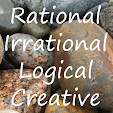Fourteen members of an advisory board to the Carter Center in Atlanta resigned yesterday in protest over former president Jimmy Carter's best-selling new book about the Israeli-Palestinian conflict, saying that they could "no longer in good conscience continue to serve."Obviously, if what the former President has written bothers them that much they should disassociate themselves with him.
The resignations were the latest episode in an escalating controversy over the book, "Palestine: Peace Not Apartheid," published in late November. It has been criticized within the American Jewish community as tilting sharply toward the Palestinians. Scholars have found fault with his fact-checking on small and large points. At least one former Mideast negotiator expressed outrage over what he called "misrepresented" history.I haven't read the book, so I can't actually speak to its bias or lack thereof, or its accuracy. However, I have two things on this point.
1) Many people have the tendency to assume that something that is not biased in their favor is biased against them, even when it is an honest attempt at a fair, unbiased appraisal of the situation.
2) I will say, as a trained historian, that history is often misrepresented by those who record it. The winners tend to write history and they like to portray it in the way that makes them look the best. This is nothing new. I'm not saying it is right, but it is a fact of life.
The deciding factor for board member Steve Berman, he said yesterday, was a passage on Page 213 that he quoted easily from memory: It was imperative, Carter wrote, that Arabs and Palestinians "make it clear that they will end the suicide bombings and other acts of terrorism when international laws and the ultimate goals" of an internationally proposed peace accord "are accepted by Israel."I'll answer Berman's question, it doesn't say to me what it obviously says to you. It says to me that the Palestinians need to make it clear that they intend to stop when they get their state. That does not mean that they have a free pass to continue bombing until they get their state or that Carter is suggesting that they should continue until they get their state. However, many believe that they won't stop even once they get a state. This is important. Many believe that the Palestinians want the state of Israel gone and that they won't stop until it is. And my understanding is that many do feel that way. It is one of Hezbollah's stated goals. However, I think that Pres. Carter is trying to convey the idea that if Palestine wants to succeed in its goal of achieving statehood, it needs to make it clear that getting rid of Israel is not its ultimate goal.
"What does that say to you?" asked Berman, a commercial real estate developer in Atlanta. "It says they can stop when they get their state. He's condoning terror as a means of obtaining the objective of a Palestinian state."
Now, as I said before, I have not read the book and I am not defending the book, per se. I can only comment on the article and the quote that Berman offers. He asked "what does that say to you" and I simply offer my opinion.


No comments:
Post a Comment